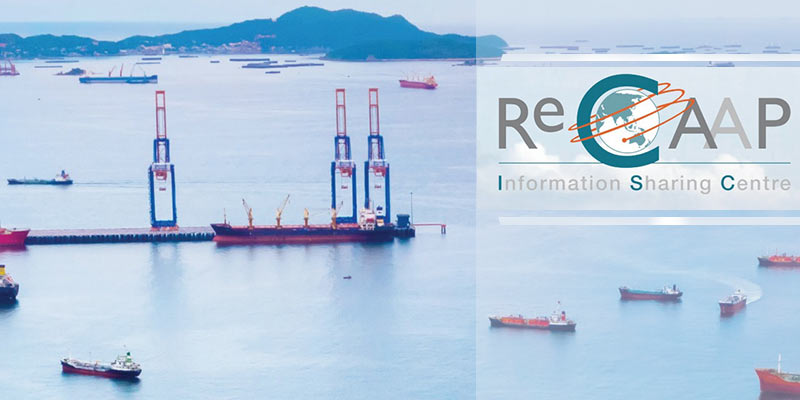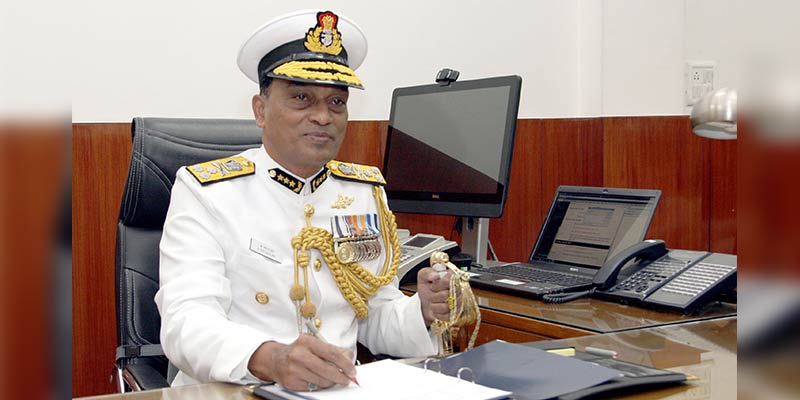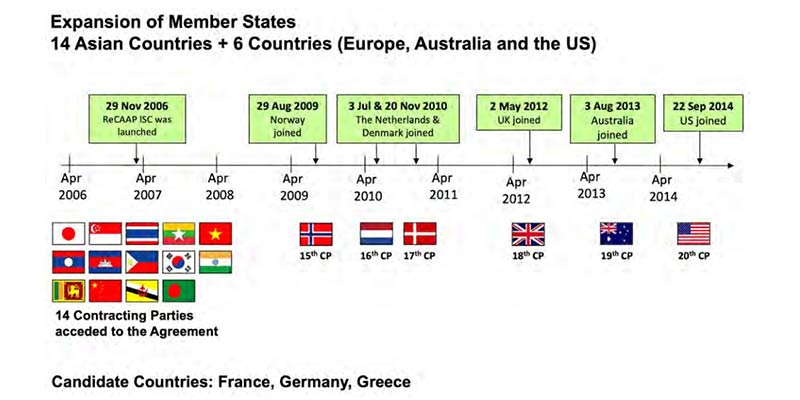- World
- Aug 06
Explainer / Role of ReCAAP in combating piracy
Director General of Indian Coast Guard K. Natarajan was elected as the next executive director of the Regional Cooperation Agreement on Combating Piracy and Armed Robbery against Ships in Asia (ReCAAP) Information Sharing Centre, Singapore.
The Indian candidate obtained 14 votes out of a total of 20 member countries of ReCAAP.
The next executive director is expected to take charge in 2022.
What is ReCAAP?
• The ReCAAP is the first regional government-to-government agreement to promote and enhance cooperation against piracy and armed robbery against ships in Asia.
• The ReCAAP Agreement was launched in November 2006 with 14 Asian Contracting Parties.
• The membership of the ReCAAP has expanded from 14 Asian countries in 2006 to 20 countries (14 from Asia, 4 from Europe, Australia, the United States) as of today.
The members of ReCAAP are:
• Bangladesh
• Brunei
• Cambodia
• China
• India
• Japan
• South Korea
• Laos
• Myanmar
• Philippines
• Singapore
• Sri Lanka
• Thailand
• Vietnam
• Norway
• Netherlands
• Denmark
• United Kingdom
• Australia
• United States.
• Furthermore, France, Germany and Greece are taking respective procedures to join the ReCAAP.
• The ReCAAP Information Sharing Centre (ISC) was established in Singapore on November 29, 2006.
• The Centre has signed MoUs (Memorandum of Understanding) with three international organisations such as IMO (International Maritime Organisation), WMU (World Maritime University) and INTERPOL (International Criminal Police Organisation).
• It has signed MoUs with four shipping associations such as ASA (Asian Shipowners’ Association), BIMCO (Baltic and International Maritime Council), INTERTANKO (International Association of Independent Tanker Owners) and OCIMF (Oil Companies International Marine Forum).
What is the significance of ReCAAP?
• One of the key features of ReCAAP is information sharing through regional cooperation. During the last 15 years, the ReCAAP ISC (the Centre) has been making efforts to provide timely and accurate information on the incidents of piracy and sea robbery to the ReCAAP Contracting Parties and maritime community at large.
• The main source of information is the Focal Points (FP) of 20 Contracting Parties who send the Incident Reports through the Information Network System (IFN). The IFN operates on a 24x7 web-based network system which links the Centre with 20 Focal Points. Incident Report sent by FP includes information of the incident such as date and time, location (longitude, latitude), number of perpetrators, type of weapons, treatment of crew, stolen items, description of incident, etc.
• The Centre is using a data analytics tool to make a deeper analysis of the situation by identifying the correlations between various factors of the incidents as well as comparing with the patterns of past incidents.
• The Centre issues warning and alert on serious incidents or a location of frequent incidents in order to advise the littoral States to take effective measures and the shipping industry to enhance vigilance and adopt preventive measures in these areas of concern.
• ReCAAP has been recognised as a successful model of regional cooperation in combating piracy and armed robbery against ships. The Djibouti Code of Conduct (DCoC) in East Africa, established in January 2009, was modelled after ReCAAP.
Trend of piracy and armed robbery against ships in Asia
• During 2007-2020, as many as 1,740 incidents in Asia were reported to the ReCAAP ISC.
• Nearly 87 per cent of these incidents were armed robbery against ships in territorial waters of Coastal States, while 13 per cent were piracy incidents at high seas.
• The number of incidents in the last 14 years has declined compared to the period in the late 1990s and early 2000s when the growing trend was alarming (353 incidents in 2000).
• However, the number of incidents had fluctuated over the years with ups and downs of number of incidents in certain locations and certain types of incidents.
• A total of 97 incidents (comprising 95 actual incidents and two attempted incidents) of piracy and armed robbery against ships were reported in Asia in 2020. This accounts for a 17 per cent increase in the total number of incidents, and a 32 per cent increase in actual incidents reported in 2020 compared to 2019.
• The increase of incidents in 2020 occurred in Bangladesh, India, Philippines, Vietnam, South China Sea and Singapore Strait.
• In India, nine incidents were reported in 2020 compared to five incidents in 2019. Perpetrators involved in the three incidents that occurred at Alang and off Gujarat were arrested. Since the last arrest of perpetrators in April 2020, no incident was reported off Gujarat and at Alang Anchorage.
Manorama Yearbook app is now available on Google Play Store and iOS App Store




